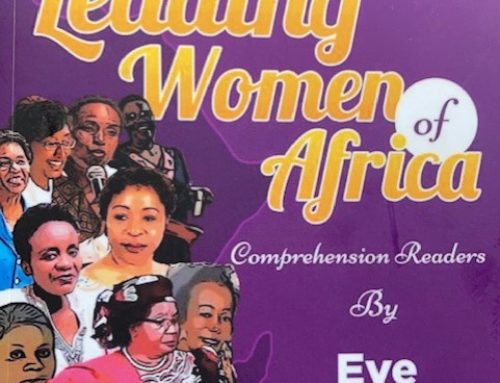a guest post by my friend Sindile Mlingo Vabaza responding to a much made comment on this blog recently about people in poverty, although typically been aimed at black people, having too many babies as one of the main factors of their continued impoverishment:
There are a lot of people out there who are putting up ‘family planning’ as the solution to certain societal ills in the country.
I want to assert that this is a misdiagnosis of the problem.
Let’s look at the facts:
1. Birth rates in South Africa on the whole are falling and have been falling for a while now(largely due to more women gaining access to education and jobs).
2. The population growth in the country is actually down to what the clever people call, “population momentum”. Basically, SA has a large concentration of people who can bear children and who feel the biological urge to do so(ages 15 to 44)… Our growth rates should plateau sometime in the future and eventually decline.
3. The larger problem in society, the root cause of so many unwanted pregnancies and babies is patriarchy and gender inequality.
Let me explain.
When women are given access to proper and sound education and have control over their reproduction(health services, easy access to contraception etc), they are far more likely to hold off having children and in fact have fewer children.
This is a fact anywhere you go in the world.
It cuts across race, ethnicity, religion and political leanings.
4. That’s where the rub comes in. Women are disempowered in this country.
Women of colour especially(because of poverty).
Talking just about family planning misses the larger point altogether…..
Women want to have children. It is biologically wired into them.
The reason some women hold off on children and plan is because their social milieu allows them too; they have an education, career ambitions etc etc
What compelling reason do women in poverty have?
Facing abusive men, misogynistic attitudes, nurses in hospitals who judge them and slut shame them when they want contraception and a future that is incredibly bleak.
Friends, let us not miss the point here.
We must fight for gender equity; we as men must stand with women not only because it is right but it makes so much practical sense for society at large.
The key to poverty elimination can be summed up in one sentence……
THE EMPOWERMENT OF WOMEN.







1. Birth rates may be falling, but not quickly enough. The rate is still very high and if it continues like that, there will be even more poor and it will rise again until natural forces like famine and disease keep it under control. We don’t want that, so lets look into how to control it. Perhaps educating people that it is not sustainable and to provide easier access to birth control.
2. Call it whatever you like. It is growing faster than the fiscus can provide in the form of grants. We need to keep it under control in some way.
3. Gender inequality is larger among the black population. One need only look at our president to see that women are not regarded as equals among many black people. Look at the Zulu king, and Swazi king and we can see more examples of this.
I would go as far as saying that the inequality between men and women among black people is even greater than the inequality among races.
I feel resentful that my money gets stolen and given to a corrupt government. If they vote ANC then let the poor struggle. Maybe they will wake up.
Have a look at the demographics of South Africa:
http://en.wikipedia.org/wiki/Demographics_of_South_Africa
You will notice that the birth rate has been fairly consistent at 1.1million per year for the last 12 years. Birth rates are not falling, but remain about the same.
I can’t read this title without thinking of that old college humour sketch about POWERTHIRST. If you’ve watched it, you’ll know what I’m talking about. That useless titbit aside, agree with everything you’ve said here, guest poster man. Well done.
Many people don’t care about these folks who have so many kids they can’t support. It’s like some don’t care about wildlife or other animals having too many offspring. Some care about people and some care about animals. Some care about both. Give me animals any day as there are way too many people ruining the earth.
Spoken with compassion, Corne. It’s completely not the same as wildlife but thanks for stopping by.
I started reading this post with a clenched jaw, expecting some bullshit about “our right to make babies if we want to”. I have to apologize for that. You’re absolutely right – the solution starts with empowering women to make choices. Thank you for writing this.
Larry, I am a statistician by training, and currently work for an international food security NGO in South Africa. The subject of “too much people” comes up quite a bit in South Africa’s poverty discourse.
Firstly, looking at absolute number of births is not a reliable indicator of birth rate, as there are many other factors such as infant mortality, general mortality rate and acceptable population growth that need to be taken into account.
What is more important is to look at fertility rate: the average number of children a women bears in her lifetime: If you look at your wikipedia article, in 1985 – 1990 a women on average had 4 children in her lifetime. Currently, the figure stands at 2.34 children. This is a significant drop and one which South Africa has been given a very favourable rating for accomplishing by development rating agencies such as WHO and UNICEF. Getting women to have less children (usually 2 to 2.5 is considered ideal for maintain a healthy population) is an important step which we as South Africa have accomplished in the 20 years.
A UNICEF study into South Africa’s success in this regard put this down to three major factors:
(1) Better access by women to family planning: Under Barbara Hogan (and continued by Aaron Motsoaledi) a huge roll-out of a wide range of family planning initiatives took place in 2008. Important was removing the requirement that one needed to have permission from one’s spouse in the case of a married person, or a parent in the case of a minor, and putting the decision solely in the hands of the women and her medical practitioner.
(2) The legalisation of first trimester abortions in 1997, and the roll-out of free abortions at state clinics to women in need under Hogan. Some 5% of all pregnancies in South Africa are aborted.
(3) Perhaps the most surprising one: the Child Support Grant (CSG) that was introduced in 1997 and broadly rolled out in early 2003. Without the grant, many women were locked into relationships where they did have control of their bodies. By empowering women the grant had an effect that a woman is now better able to look after an existing child rather than relying on being in a relationship that might cause more unwanted children. The CSG’s introduction saw a drop in teen pregnancies. Again, a hungry teenage girl is more likely to have sex with a boyfriend for food that her own family is unable to provide. See http://www.unicef.org/southafrica/SAF_resources_csg2012sum.pdf
An economic study shows that our grant system is totally sustainable on a fertility rate of 2.5 children per woman in her lifetime or less, and an economic growth rate is 3% or more. Our problem in South Africa is not our birth rate, it is our low economic growth rate. One postive aspect of 2014 has been the introduction of the wage subsidy (the first time the Zuma government has taken a pro-growth stance against labour) which has been accessed to create 207 000 job opportunities. It is these policies that need to be strengthened not grants cut.
On a side political note: Each time a white person, especially a politician, criticizes our grant system, it sends a poor voter into the hands of the ANC. One of the ANC’s greatest success stories is the grant system, and it is one that it often uses also as a fear tactic that should the DA come to power, the grant system will be cut. Voters are generally not stupid, just self-interested.
One of the big failures the DA made under Tony Leon was to not effectively champion the grant system. It was only in 2002 that the DA fully backed the grant system (the DA has done a fairly good job of erasing all traces of the opposition to grants prior to 2002 on the web). Helen Zille is to be commended for ensuring that DA policy is unequivocal on its support, but still has to do a lot of work to gain the confidence of the voters that the grant system will not be done away with to counter the damage done by the Leon years.
Thanks for the info David. Much helpful.